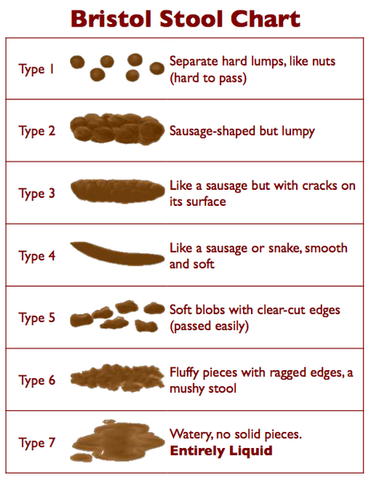
Could constipation be the cause of your child’s bedwetting?
Share
Constipation can be the cause of, or contribute to, bedwetting. A distended bowel can put pressure on the bladder, shrinking its capacity, so the child cannot hold as much urine during the night.
How can I tell if my child is constipated?
Constipation occurs in up to 10% of children.
Your child could be constipated if:
- They go poos less than 3 times a week
- The stools are Type 1 or Type 2 on the Bristol Stool Chart
- They have large stools which block the toilet
- They strain or have pain when trying to go poos
- They have overflow soiling in their underwear
- They experience tummy aches or poor appetite
Constipation is called chronic if the problem exists for more than 2 months. It can lead to faecal incontinence (soiling) because the build-up of stools in the bowel and rectum result in the bowel getting so stretched that it is not able to register that there are undischarged poos. As a result, the usual signal to the brain that the child needs to go to the toilet is not sent and often there will be a ‘sneaky’ discharge of poo catching the child unawares. This not their fault and can be acutely embarrassing and socially isolating for a child.

Why is my child constipated?
Some children have ‘toilet phobia’ and develop withholding habits to cope with this. This may occur if they don’t like going to the toilet at school because of cleanliness issues, or because they have been bullied or made fun of when going to the toilet. Talking to the school about these issues can be helpful.
Some children are too busy to go to the toilet -super absorbed in what they are doing they frequently use withholding postures to stop their bowel signals so they can play uninterrupted. Over time this may lead to desensitisation and constipation.
Contributing factors may also include lack of fibre and fluid in your child’s daily diet.
What should I treat first- bedwetting or the constipation?
Before treating your child’s bedwetting, it pays to treat constipation and faecal incontinence as this may, over time, fix the bedwetting as well.
You should talk to your child about the problem, reassuring them that they are not alone -many kids deal with constipation – and that it can be cured with their co-operation.
Seek help from your family doctor, or, if your child attends school, you could contact the Public Health Nurse associated with their school (ask at the school office).
Treatment regime for constipation
Treating your child for constipation can take a few months to several years. Usually, the treatment regime will take as long as it took for your child to develop the symptoms of chronic constipation.
The first thing that needs to happen is the evacuation of the hardened stools in your child’s large intestine and bowel. This is usually done with oral laxatives which soften the hard poo and stimulate bowel movements. It can be a bit of a messy business so during the initial treatment period it is recommended that school-age children are kept at home.
Then you need to establish regular toileting routines and bowel movements. Again, this involves daily doses of laxatives and then going to the toilet 15-20 minutes after eating, using a footstool to raise the child’s legs and relax the pelvic floor muscles to make pooing easier.
Maintaining regular bowel movements over the long term can be helped by:
- Maintenance doses of laxatives, especially where the child exhibits signs of recurring constipation such as bad breath, flatulence, soiled underpants, sore tummies or urinary tract infections;
- Regular daily toileting routine -15-20 minutes after eating. It doesn’t matter if they don’t poo every time, it is the act of sitting on the toilet and giving the bowels a chance to work if they need to;
- Daily exercise in the form of sports or play. Being active every day can help your child’s metabolism and is generally good for their health;
- A diet that includes good fibre and fluid. It is recommended that a child has at least 6 glasses of water/milk/water-based cordial a day along with 5+ servings of fresh fruit and vegetables.
Treatment regime for bedwetting
Once your child is cured of their constipation and has established good daytime toileting routines then, if they still have issues with bedwetting, you can start treating this.
A bedwetting alarm helps your child recognise the full-bladder signals during sleep and over time trains them to respond to these. In most cases, curing you’re your child’s bedwetting with an alarm can take from just a few weeks to 3 months. However, in some cases it may take longer than this.
Recommended Reading:
Bedwetting in Children and Young People by Dr C Y Yemula ISBN 978-1-907851-11-7
Poo Hoo Parent/Teacher Information First edition 2012 by Jacqueline Brown published by New Zealand Continence Association ISBN 978-0-473-21596-5
